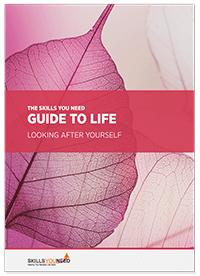Personal Health, Community Health:
Your Surroundings' Impact on You
See also: Caring for your Body
Undoubtedly, you understand well how your environment can impact your health.
When you are surrounded by fitness fanatics, you likely feel the pressure to work out and eat well, which makes you healthier overall. Unfortunately, this influence can work the opposite way as well: if your peers are lax with exercise and lazy with food, the pressure to be healthy lifts — and you will start to feel unfit quickly.
Public health advocates have worked sporadically throughout history to improve health, but only recently has the medical community drawn a stark connection between community and individual when it comes to overall well-being.
Every environment you experience, from your childhood home to your adult workspace, contributes to your attitude on health, and in turn, your attitude affects the health atmosphere of your environments.
Here are the five most important places that shape your health — and none of them are the doctor’s office.
1. Where You Live
The realtors have it right: location, location, location of your home is incredibly important when it comes to personal health.

Though it is entirely possible to craft a healthy lifestyle no matter where you live, it seems that certain cities around the United States inspire their populations to be the healthiest they can be.
For example, the following cities scored at the top in terms of overall fitness friendliness and health care access:
- Boston, Massachusetts
- San Francisco, California
- Portland, Oregon
- Seattle, Washington
- Denver, Colorado
Meanwhile, the following cities harbor the worst averages for physical health, including having the highest obesity rates and blood pressure rates in the country:
- Huntington, West Virginia
- Charleston, West Virginia
- Kingsport, Tennessee
- Columbus, Georgia
- Redding, California
Moreover, a Harvard study is currently examining how a house’s placement within a city can determine health.
For example, living next to a busy road can expose you to more fine particulate matter in the air, which increases your likelihood of renal failure, coronary heart disease, cancer, and more. However, not only does the location of your home matter, but its quality also has a significant impact on your health.
The World Health Organization (WHO) found that housing improvements dramatically improve your mental health — unless you move before you get the full benefit of the improvements.
Of course, location of your home can have positive effects; the Harvard study notes that women who live in dense urban areas usually boast better health averages, and WHO states that high-quality neighborhoods are markers of general community well-being. Thus, it is incredibly important to choose where you live with extreme care.
2. Where You Learn

The point of grade school is to provide children with the skills they will need in their adult lives.
It should come as no surprise, then, that how a learning institution handles the complex issue of health will have lifelong impacts on its students. Schools that provide healthy lunch options and provide health-boosting extracurricular activities tend to foster good habits that endure throughout a child’s life.
Unfortunately, a school’s ability to provide beneficial health instruction seems to be inextricably linked with its financial situation; that is, wealthier schools have an edge health-wise over underprivileged schools. Still, qualified public health officials can make a difference in lower-income education districts by working with economically poor schools to teach the tenets of good health.
3. Where You Work
Just as kids spend the majority of their days in the classroom, adults devote most of their time to their workplace. Thus, your work peers and environment undoubtedly impact your health.
Merely having a reliable source of income drastically reduces the stress hormones in the body, which can improve organ function across the board.
However, the type of work you do can also affect how you feel.
The healthiest jobs provide safety, flexibility, and some level of autonomy — plus a good health care package.
The following jobs tend to be some of the best for the body and mind:
- Fitness instructor
- Software engineer
- Florist
- Government employee
- Small business employee
However, when jobs don’t provide a positive environment, the health ramifications can be devastating. Poor working conditions can cause all sorts of health trouble, from repetitive stress injuries to chronic disease.
Here are the jobs with the worst health ratings:
- Firefighter
- Desk jockey
- Lawyer
- Health care shift worker
- Enlisted soldier
Of course, these lists are not set in stone; any workplace has the capability to become either healthful or unwholesome, and it can even swing back and forth.
The key is to understand how your job affects your health and make necessary changes for the better. See our page on Workplace Stress for more information.
4. Where You Play
You probably cherish your leisure time as sacred, but the way you spend your down time could very well be affecting your overall health.

Adults need play just as much as children do, and in many ways, it is for the exact same reasons. Play positively challenges the body and mind, allowing you to become more relaxed, more creative, and generally healthier.
However, the type of play you choose is also important. Going to the park or swimming pool will improve your health, while watching television or playing video games will not.
Kids are especially susceptible to less healthy play. Screens isolate and stagnate a child, preventing him or her from growing and learning properly.
You should inspire your kids to engage in more active forms of play, particularly those that get them outside with other kids.
Further Reading from Skills You Need
The Skills You Need Guide to Life: Looking After Yourself
Based on some of our most popular content, this eBook will help you to live a happier, healthier and more productive life.
Learn how to look after your body and mind: the fundamental first steps to personal development.
This eBook, now in its second edition, with new and revised content, is designed to make life both easier and better.
5. Where You Shop
Not everyone shops for food in the same place; in fact, not everyone even has the ability to do so.

Supermarkets are above and beyond the most healthful places to find food, as they offer the nutritious whole foods that make up a balanced diet: fruits, vegetables, grains, meat. Yet, many American families take for granted the availability of these food options.
A study from the U.S. Department of Agriculture found that 23.5 Americans do not have a supermarket within a mile of their homes, and economically poor communities claim only half the number of supermarkets that affluent neighborhoods have. In many cases, families in these areas must shop for food at less desirable places, like convenience marts or even fast food restaurants.
However, you should always strive to procure fresh produce from a supermarket or similar store, as your health depends on the sustenance you provide your body and brain.
About the Author
Megan Andrews is a freelance writer who is just stepping into the wonderful world of content marketing and SEO. She has a BA in English and experience in many fields, ranging from finance to health (and a few odd ones too).
When not creating quality content for quality sites, Megan enjoys reading, photography, and learning new things about the amazing world around her.
Continue to:
Tips to Avoid Stress
Healthy Body | Healthy Mind

